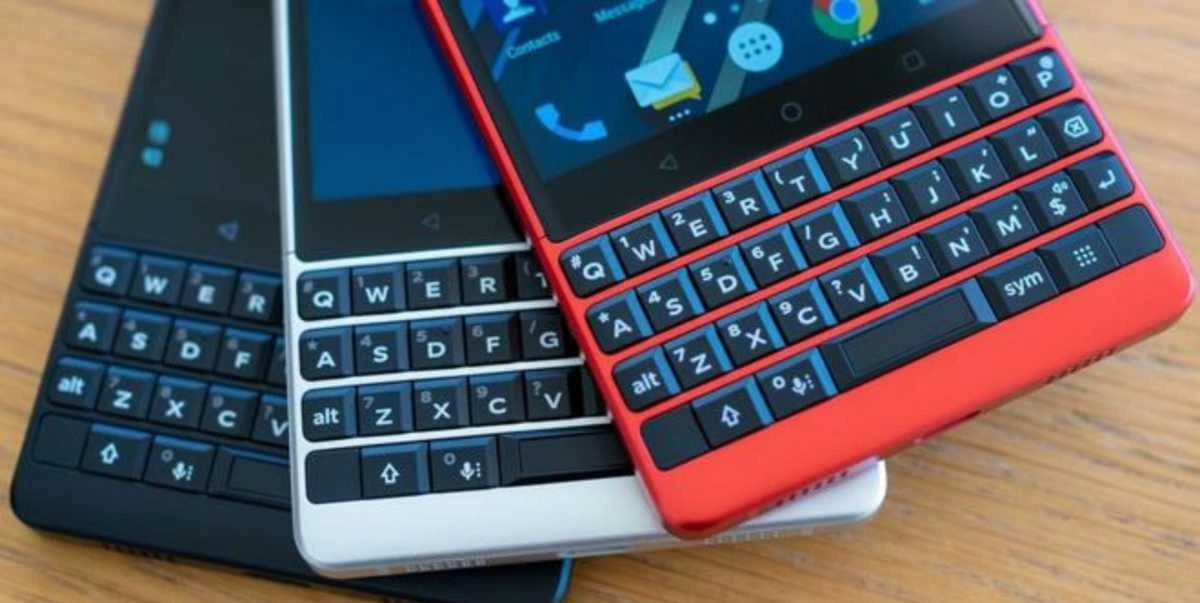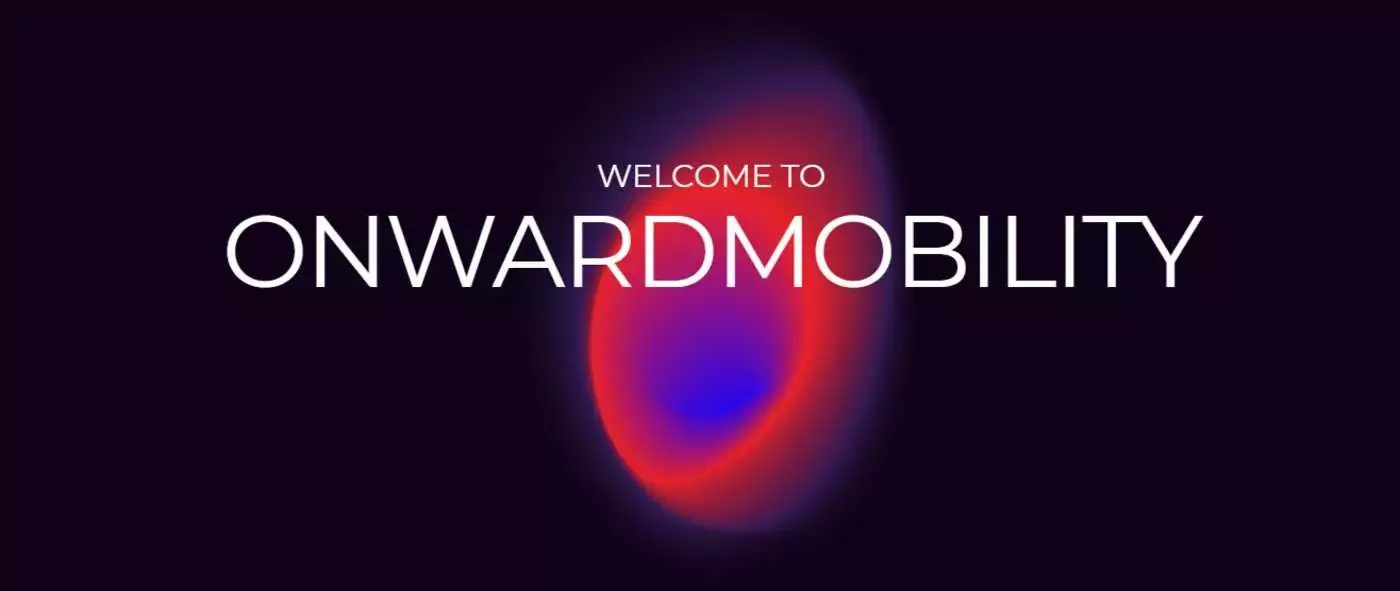In a surprise announcement last week, it was revealed that BlackBerry is teaming up with startup OnwardMobility (OM) for a new 5G smartphone with physical keyboard and enhanced security. Under the terms of the agreement, BlackBerry has granted OnwardMobility, a US-based company in the mobile security space, the right to develop, engineer, and bring to market a BlackBerry 5G mobile device.
If you’re experiencing a feeling of déjà vu, you’re not alone, as we have all been here several times before, as BlackBerry licensed out smartphone production to BB Merah Putih, TCL, and Optiemus Infracom – and they all failed. So that leaves us with the question. What can OM do to succeed where BlackBerry themselves, and then three licensees, failed?
Smartphones with Physical Keyboards
Personally, It’s difficult to see OM succeeding where others couldn’t. While there will always be a market for phones with physical keyboards, it’s a niche market and the question remains whether that market is large enough to be worth pursuing . OM obviously think it is.
In an interview prior to the announcement, Sarah Tatsis, BlackBerry VP of Advanced Technology Labs, said:
The keyboard design had not yet been finalised, but it will reflect the brand values from a keyboard typing experience and input experience. Any device will also have to meet BlackBerry’s internal quality and security requirements.
Peter Franklin, CEO of OM, added:
“The device would use a clean-sheet keyboard created in-house, rather than reuse a design previously used by BlackBerry or TCL”.
The fact that the keyboard design has not been finalised yet would suggest that the smartphone is not anywhere close to production.
Enterprise
Clearly this smartphone will be targeted at Governments and the Enterprise but whether this will also be a consumer device, or even available to consumers, will likely be a hot topic of discussion until further details are revealed.
Tatsis has said:
We see this as a smartphone that needs to live up to protecting customers from a security and privacy perspective. The phone is specifically aimed at governments, and organisations that base a high-value on security and privacy.
While OM state they have:
a clear mission to provide all businesses, from government to enterprise to those who power the gig economy—the most productive, most user-friendly and most secure mobile devices ever created. So nothing gets in the way of their mission.
My personal opinion is that OM won’t be so short-sighted and will make this available to consumers. Interestingly, OM’s website says “new BlackBerry 5G smartphones are coming in 2021”, implying there will be more than one device.

BlackBerry Smartphone Failures
Will the never ending story of BlackBerry phones just enter into another period of hype, speculation and eventual failure, or can OM avoid the mistakes of the past and actually do something different? When I was young, my gran used to tell me constantly that only a fool keeps repeating the same mistakes, expecting a different outcome.
For a few years, Rapid Meta were a BlackBerry Platinum Enterprise partner and I was a BlackBerry Elite and Developer, giving us a good insight into what went on with BlackBerry over the years. So let’s delve into my opinion of some of the mistakes that were made in the past and whether lessons can, or will, be learned going forward.
Specs and Pricing
The harsh reality in the smartphone business is that specs matter to the vast majority of consumers, and can seriously influence a users decision on which smartphone to buy. Since BlackBerry launched the Z10 in January 2013, they have never quite produced a flagship product. Devices have always been that one step behind, whether it was in memory, processors, screens, etc – and let’s not even mention the cameras, which were usable (I’m being kind) but never spectacular.
For this first smartphone to succeed in the consumer sphere, it needs to be a flagship product with specs and pricing to match competitors. However, OM appear to realise this:
“Top of mind for us is not just making the most secure and productive device, but also being an everyday device,” said Franklin.
“That means things like a top-notch camera, and the other specs you’d expect from your day-to-day phone. Simultaneously, we know that we must be competitive, and so is our pricing.”
Long gone are the days where the BlackBerry logo on a smartphone could add £200 or £300 to the value and price of a phone. The pricing must be competitive and match the phone that is being offered.
Marketing and Advertising
BlackBerry were never great when it came to marketing their products and I would contend they still aren’t. However, TCL took this to a whole new level of ridiculousness. They signed a crazy partnership and then proceeded to cut off every other single site and company that solely promoted BlackBerry.
It failed miserably, as you can’t successfully sell a product by only pushing it to an existing user-base. That’s like preaching to the converted! Many users of fan sites will tend to buy the device regardless (many unseen) and they don’t need to be convinced to buy it.
A successful business or product relies on a growing userbase and previous strategies made sure that was never going to happen – and it didn’t.
Quite simply, OM need to have a really good marketing budget behind them and team up with a professional marketing agency who have the experience and knowledge to get the smartphone information “everywhere”.
While I wouldn’t expect OM to spend marketing dollars in a competitive manner like Apple, Google, Microsoft, Huawei and others, I would expect them to have some sort of realistic marketing budget.
If people don’t know about it, how can they buy it? I know that seems so simple and straightforward but tell that to BlackBerry and TCL!
Availability
This appears to be another area that is really common sense. If a user wants to buy a product but it isn’t available to buy, they will go elsewhere. In recent years, that was the situation though. There were many existing users wanting to buy a BlackBerry smartphone and they just couldn’t, due to a lack of availability.
The strategy seemed to be a very hesitant one. Phones were launched in batches of small amounts and once they were sold, another small batch would be made available. It appeared that TCL were very fearful that they would be left with mass quantities of unsold devices, and that was the rationalisation for limited volumes.
This wasn’t just the case for consumers, it was also the situation in the enterprise. We had clients wanting to buy a few hundred BlackBerry smartphones and we just couldn’t deliver it to them, as our distributors didn’t have that much stock. Clients wanting BlackBerry’s ended up buying hundreds of Apple, Samsung and other devices from us. The sad part was that this wasn’t a rare occurrence, it became routine.
Obviously, getting carriers on-board was another difficulty and it should be really interesting to see how OM deal with getting carriers to take on the phone. Literally, OM will have to try and convince a lot of companies they are not taking a huge risk. While there will be a risk involved, that risk needs to be minimised.
Security
BlackBerry are undeniably synonymous with security but it takes a lot more than security alone to entice people to buy a smartphone. While it may sound strange to some, security should not be the main selling point of any BlackBerry smartphone. That strategy has been tried and didn’t work.
Security should be about securing the whole product. “Here’s our phone, the design, the specs, the features, the apps, the price – oh and every aspect of it is secure!“.
At this point, we only know that the phone will be running Android. Unlike previous BlackBerry smartphones, it should be running the latest Android version at launch. You can’t tout security on a phone if you don’t update the underlying software to the latest Android release – and update it monthly with the latest security updates.
This was another failure of recent BlackBerry Android smartphones. The OS was always behind and the lack of monthly security updates became laughable.
When it comes to security, let’s not forget that Apple, Samsung, Google and others have completely upped their game in security since BlackBerry last released a new smartphone (2016).
For many years, the perceived better security in Apple devices was attributed to its closed nature, and that has just been constantly improving.
Android security is improving with every new release of the OS thanks to the security teams of Google and Samsung. Google has also been strengthening Android by adding new file-based encryptions, modifying what resources an app can access and how, adding mitigation’s to make hacking harder even with zero-day exploits, the list goes on.

Let’s take a look at some of the other contributing issues that resulted in BlackBerry’s smartphone failures. Some issues that OM really have no control over.
BlackBerry Fans
Now this section will be contentious and won’t be popular with a lot of BlackBerry “fans”. I’ve already discussed how targeting new users is an absolute must but there is still that small niche of BlackBerry “fans” who will buy this smartphone regardless.
However, that niche has dwindled and is now severely fragmented and actually should take some responsibility for BlackBerry’s smartphone failures.
Whether you’re a fan of a sports team, a band, or whatever, fans tend to give their support with what the team, band, etc is doing now. If you don’t like where they are now – you move on. That didn’t happen with BlackBerry”fans”.
The niche of BlackBerry smartphone “fans” has reduced significantly, with many moving on to other platforms. The remainder of BlackBerry’s fan-base became split with those who stuck to BBOS phones, others who stubbornly refused to budge from BlackBerry 10 phones and others accepting the new Android smartphones. That was a huge problem because every single “fan” who stuck with BBOS and BlackBerry 10, was a lost BlackBerry Android phone sale.
The difficulty here is that if you can’t convince your own fan-base to switch to your latest Android devices, how can you possibly expect new users to embrace them. Can BlackBerry’s fan-base be convinced to accept reality, leave the past behind, (BBOS and BB10) and embrace the new upcoming smartphone?
Is it even a BlackBerry smartphone?
This question isn’t as strange as it may first sound. OM will conduct product planning and market development and FIH Mobile will design and manufacture the BlackBerry device under strict guidelines to ensure component, device and supply chain integrity. The device also has to meet BlackBerry’s internal quality and security requirements.
So what is BlackBerry’s involvement beyond providing those guidelines and ensuring the internal quality and security requirements? Is this a case of BlackBerry simply whoring the brand name out to yet another licensee and sitting back hoping that this time it will work out, or will they have any involvement beyond that?
IF OM are even producing the physical keyboard, what aspects of the new smartphone make it a BlackBerry?

Between now and 2021
We’re told to expect the new BlackBerry smartphone in the middle of 2021 and if OM stick to BlackBerry’s old routine, that could mean any time around the end of 2021, and beyond.
In the tech industry that is an incredibly long time. There will be new flagships from Google, Samsung, Apple, OnePlus, Huawei and many others. Technology will have moved on as fast as it normally does. There will be upgraded screens, cameras, processors, memory chips, mobile technology, connectivity options – and on and on and on.
Obviously, a lot of what is coming is publicly unknown today but the main point is that hopefully OM will be designing not for today’s tech world, but for whatever is coming. The last thing they need is to produce a a smartphone in 2021/2022 that was flagship specs in 2020.
As for the tech media, information will continue to be released as it comes out prompting discussion, debate, arguments and opinions. Media interest will be high in a new BlackBerry smartphone, but it always has generated great interest – but never matching sales.
You can expect old faces crawling out of the woodwork and telling us us how fantastic this news is and how wonderful the phone is going to be. There will be many rumours, much speculation and there are bound to be tons of suggestions for OM ranging from great ideas to the ridiculous.
It would be great to see a successful BlackBerry smartphone once again and I really hope that OM offer a different business model to previous failed models. However, they have taken on a monumental task and let’s just hope they fully realise how monumental it is.
Logged in users should Bookmark this article as we will refer to it between now and the phone’s release.



